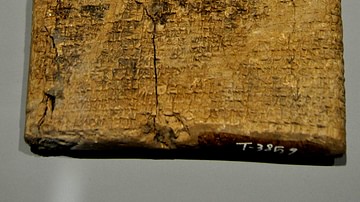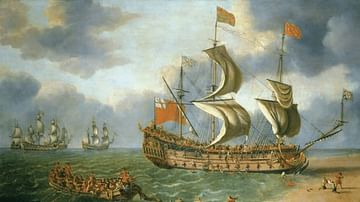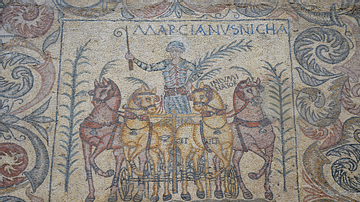Search Articles
Browse Content (p. 51)

Article
Siege of Toulon
The Siege of Toulon (29 August to 19 December 1793) was a decisive military operation during the French Revolutionary Wars (1792-1802), conducted by a French Republican army to retake the port city of Toulon from rebels, who were supported...

Article
Horace's Epistles
Horace's Epistles are a series of letters, providing sage advice to various friends. Quintus Horatius Flaccus, better known as Horace (65-8 BCE) wrote 20 letters around 20-19 BCE, collected in Epistles I, while Epistles II, most likely written...

Article
Interview: Dr. Bastian Eclercy on Guido Reni at the Städel Museum, Frankfurt
Misunderstood, neglected, forgotten. The Städel Museum in Frankfurt, Germany is rediscovering one of the star painters of the Italian Baroque in a landmark exhibition: GUIDO RENI. The Divine. In his day, Reni (1575-1642) was one of the most...

Article
The Railways in the British Industrial Revolution
The railways were perhaps the most visible element of the Industrial Revolution for many. Trains powered by steam engines carried goods and people faster than ever before and reached new destinations, connecting businesses to new markets...

Article
Matter of Aratta
The Matter of Aratta is the modern-day title for a collection of four poems – Enmerkar and the Lord of Aratta, Enmerkar and En-suhgir-ana, Lugalbanda in the Mountain Cave, and Lugalbanda and the Anzud Bird – concerning the rivalry between...

Article
The Steam Engine in the British Industrial Revolution
Steam power was one of the most significant developments of the Industrial Revolution (1760-1840) in Britain. First invented as a pump in the 1690s, a host of inventors tweaked designs and tinkered with machinery until an efficient and powerful...

Article
The Wreck of the HMS Gloucester
The HMS Gloucester was wrecked in the North Sea, about 30 miles off the shore of Norfolk, England, shortly after dawn on 6 May 1682. It was a warship in the navy of Charles II of England (r. 1660-1685), and at the time of its loss, it was...

Article
Prehistoric Alpine Stilt Houses
Alpine stilt houses are a unique and fascinating aspect of prehistoric architecture in the Alps, which provide valuable insights into the lives and culture of the ancient communities. The houses were built by prehistoric communities living...

Article
Lugalbanda and the Anzud Bird
Lugalbanda and the Anzud Bird is a Sumerian myth dated to the Ur III Period (2047-1750 BCE) featuring the hero-king of Uruk, Lugalbanda, father of Gilgamesh, in his younger years as an honorable officer in the army. Lugalbanda's purity of...

Article
Chariot Racing in Ancient Rome
Chariot racing was very big business in ancient Rome. There was a whole industry built around the factions, the four professional stables known by their team colour – Blue, Green, Red, and White –, providing all that was required for a race...